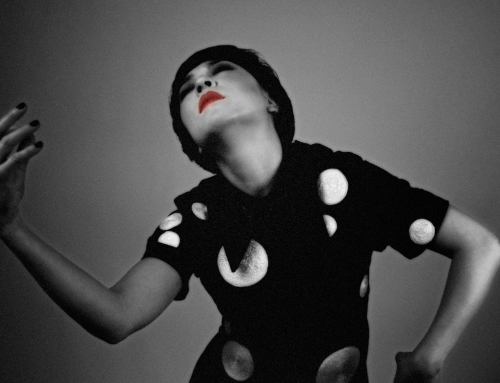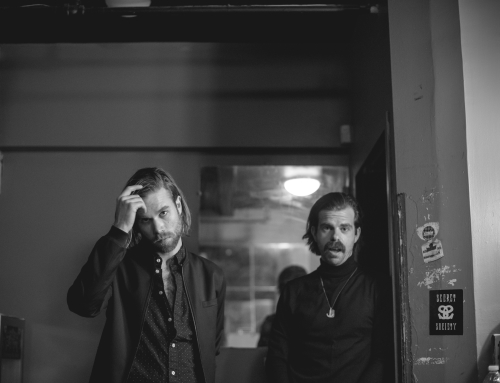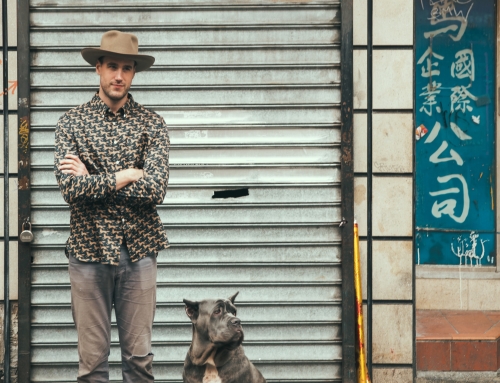Gypsy music, at least the type espoused by The Petrojvic Blasting Company (or often simply Blasting Company), is born of a nomadic tradition. Romani peoples, whose earliest origins can be traced to northern India, slowly moved west to Eastern Europe bringing with them the sophisticated melodies and glissandi of their oldest musical roots. It has even been said that their appearance in Andalusia in Southern Spain aided the genesis of Flamenco. Today in modern-day Los Angeles, as if brought by some wooden-wagon time machine, these antique sounds are suddenly echoing around concrete city blocks, giving the greyest urban corner a decidedly sepia tone.
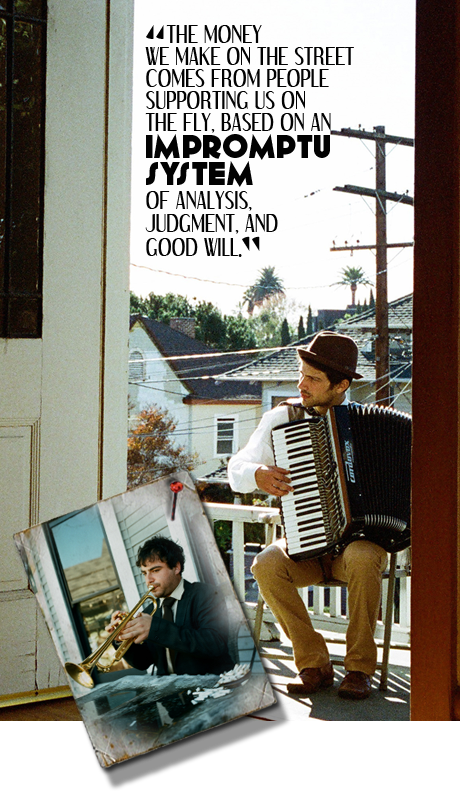
Blasting Company are old souls, often clad in porkpie hats, waistcoats and the occasional WWI-era moustache. They look stuck somewhere between hipsters and time-travelers, not fully committed to either. They speak and sing from a semi-forgotten, dusty vernacular, never breaking character. Even while whipping the audience into a table-dancing frenzy or stopping traffic in the afternoon, the band rarely crack a smile. This stiff-lipped mystique and earnest-to-the-edge-of-awkward delivery is what sets them apart from their contemporaries. While bands like the Decemberists or Six Organs Of Admittance incorporate elements of gypsy music, Blasting Company are gypsies, and have even traveled to Romania to study with their old-country brethren.
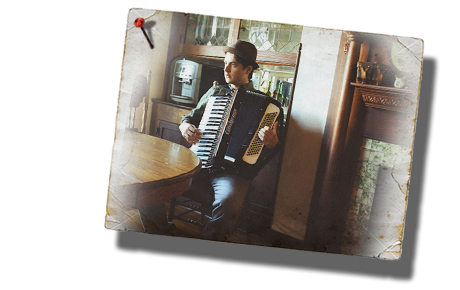
You are more likely to find the band belting out their evolutionary interpretation of gypsy music, sans electricity on a busy L.A. street corner than in a crowded club, with lyrics shouted over blazing horns and unplugged guitars. The group prefers the direct approach to the sometimes-bureaucratic world of promoters, flyers and ticket sales. “Not that we have disdain for that. It’s just nice to play when you want to play,” explains Justin Petrojvic, who, along with brother Josh, founded the band. “Plus it’s a socially open way to perform. You’re accessible to everyone and anyone can choose to be accessible to you, not just folks that adhere to a certain scene.” In addition to loftier ideals, the street provides a type of sustenance for a band that exists largely on the money dropped into a hat by their audience of passers-by. “It’s nice to be buoyed mostly by a donation system,” says Petrojvic. “The money we make on the street comes from people supporting us on the fly, based on an impromptu system of analysis, judgment, and good will.” And so, like town square preachers from the days of yore, the group travels around, collecting funds and converts.
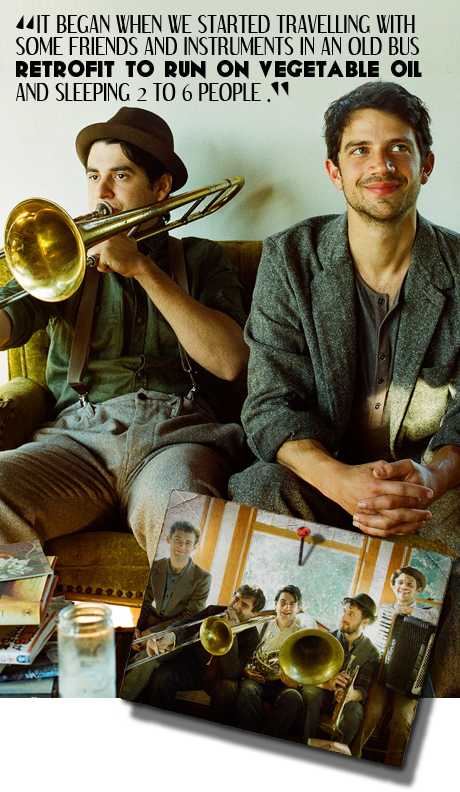
The short version of this unusual collective’s origin story begins with two brothers — Justin and Josh — and a swimming hole near their Tennessee home. Once a quarry, the land belonged to a Serbian fellow named Milutin Petrojvic, who inherited the inactive mine (closed after blasting damaged nearby homes) from his grandfather. Drawn to the strange and beautiful music that wafted from the owner’s house, the boys swam closer and closer to the property each visit to the swimming hole, until one day they drew too close and were threatened by its tenant for trespassing. Eventually, the property owner’s anger abated, stories were exchanged, and a family friendship was sealed with the brothers adopting the surname Petrojvic in tribute of their friend and muse.
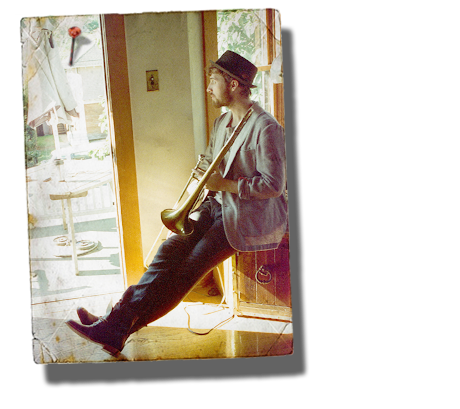
Years later with these seminal memories and early inspirations in tow, the band began to form — built from hand to mouth. “It began when we started travelling with some friends and instruments in an old bus retrofit to run on vegetable oil and sleeping 2 to 6 people,” recalls Petrojvic. “None of us brought money so that what we earned would dictate what options we had. We travelled (and broke down) like this for a little over a year, picking up members and dropping them off when they got tired of the road.” Eventually, the bus died and the band followed suit, leaving the brothers back where they started. The next chapter was a matter of chance, according to Petrojvic: “We looked at each other, blinking, and then he caught a flight to Spain, I a ride to Los Angeles. We played chess over email to decide where to meet next, L.A. or Spain. I won and he came here.”
Over time, like-minded individuals gravitated towards the band, swelling the ranks and enabling the formation of a roster that waxes and wanes for every show, often determined more by the loudness of an instrument than the versatility of something like a guitar.
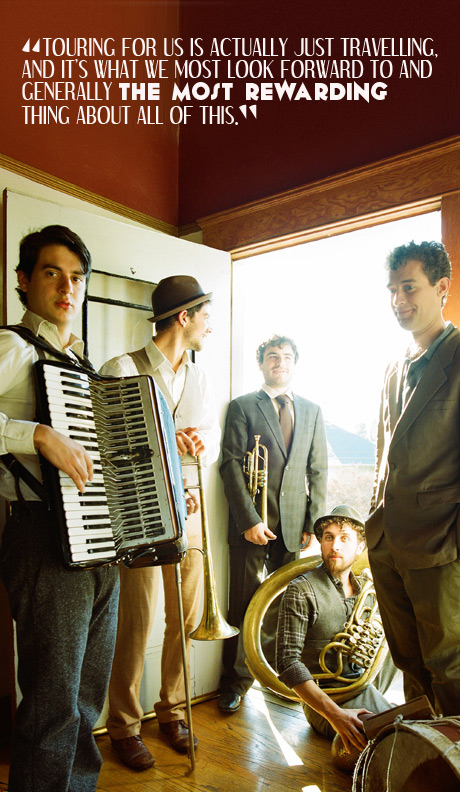
From left to right: Josh Petrojvic (accordion), Justin Petrojvic (trombone), Charles de Castro (trumpet), Brandon Armstrong (helicon), Cory Beers (tapan).
Whatever the particular formation of the band might be during any given performance, Blasting Company is a spectacle — and a charming one. And though lately the band can be found playing indoors more often than before, the true magic still happens beneath the sky, free of electricity and cults of personality. Would-be fans are advised to keep their ear to the ground, as these nomadic, contemporary gypsies aren’t likely to stay put or announce/adhere to a proper touring schedule. “Touring for us is actually just travelling, and it’s what we most look forward to and generally the most rewarding thing about all of this,” shares Petrojvic. “Our tours start with us spending our own money to get on the road. Then we busk on the streets of each town to make enough cash to get to the next. And if we don’t make enough, then we stay in one place for a while. It’s open-ended, but it always works out.”
TOURING: Feb 5, Ovvio Arte in Nashville, TN; Feb 9, The Jalopy Theater in Brooklyn, NY; Feb 10, Bullfrog Brewery in Williamsport, PA; Feb 17, The Sentient Bean in Savannah, GA.








